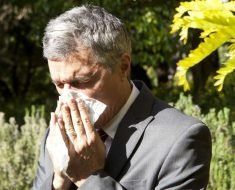Editor’s note: Find the latest COVID-19 news and guidance in Medscape’s Coronavirus Resource Center.
The U.S. will become increasingly vulnerable to the coronavirus in the fall and winter this year if Congress doesn’t approve new funding for more vaccines and treatments, Ashish Jha, MD, the White House COVID-19 response coordinator, said Thursday.
In an interview with The Associated Press, Jha said booster doses will be necessary for most people as immune protection wanes and the virus adapts to become more contagious. In addition, a new generation of shots may be needed for better protection against new variants.
“As we get to the fall, we are all going to have a lot more vulnerability to a virus that has a lot more immune escape than even it does today and certainly than it did six months ago,” he said. “That leaves a lot of us vulnerable.”
Also on Thursday, President Joe Biden ordered flags to fly at half-staff through May 16 to mark 1 million U.S. COVID-19 deaths during the pandemic, according to ABC News.
Last week, the White House released an estimate that up to 100 million Americans could become infected with the coronavirus during the fall and winter, which could lead to major surges in hospitalizations and deaths.
Jha noted that the next generation of vaccines, which would likely focus on the Omicron variant, “are going to provide a much, much higher degree of protection against the virus that we will encounter in the fall and winter.” At the same time, if Congress doesn’t pass legislation to support new funding in coming weeks, the U.S. could lose priority to other countries in securing vaccine supply, he told the AP.
In March, the Biden administration requested $22.5 billion for coronavirus assistance, which has stalled in Congress for several reasons, including a call from Republicans to strip $5 billion in global aid. Jha told the AP that he has spoken with lawmakers in recent weeks, saying the current $10 billion proposal is “the bare minimum that we need to get through this fall and winter without large loss of life.”
In addition, Jha called for the U.S. to provide vaccine assistance to other countries to slow the spread of additional variants and mutations.
“All of these variants were first identified outside of the United States,” he said. “If the goal is to protect the American people, we have got to make sure the world is vaccinated. I mean, there’s just no domestic-only approach here.”
The FDA is scheduled to meet in June to decide which strains of the coronavirus will be targeted in vaccines manufactured for the fall, the AP reported. Jha said it takes two to three months for manufacturers to develop the shots, so the decision must be made in the summer to prepare for the fall. At this time, he added, the U.S. has run out of federal COVID-19 response funds to order new batches of vaccines.
“If we had the resources, we’d be there having those conversations today,” Jha said. “The window is really closing on us if we want to be in the front of the line.”
Jha took over the White House COVID-19 response coordinator role a month ago, the AP reported. He said there is “no viable alternative path” right now than for the U.S. government to lead the procurement of COVID-19 vaccines and treatments, rather than allowing the commercial market to handle it.
“One of the things that we’ve been talking to Congress about is these tools are great — but only if you have them, only if you can use them,” Jha said. “And without support from Congress, it can be very hard to continue to protect the American people.”
Sources:
The Associated Press: “The AP Interview: US ‘vulnerable’ to COVID without new shots.”
ABC News: “Biden orders flags to half-staff as US records 1 million COVID deaths.”
WebMD: “COVID Surges Could Infect 100 Million Americans Later This Year.”
Source: Read Full Article





